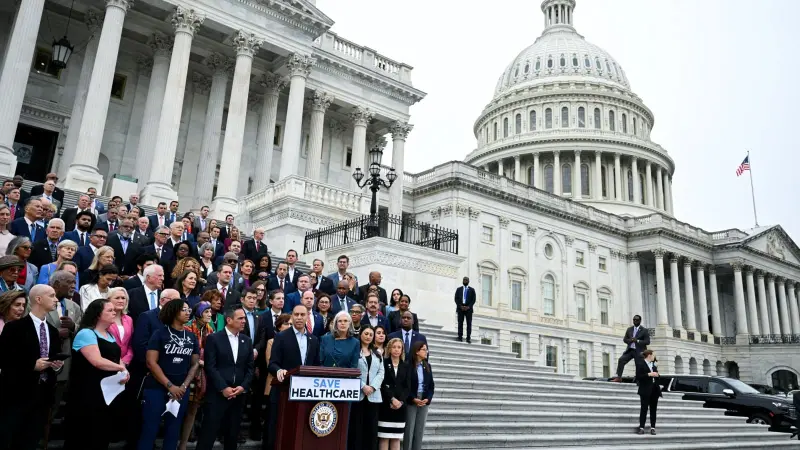October 6, 2025
Democrats are framing the ongoing US government shutdown as political leverage to protect healthcare funding, including subsidies under the Affordable Care Act, warning of potential harm to vulnerable Americans.

As the United States enters a government shutdown on October 1, 2025, Democrats are actively pushing back against Republican-led proposals, framing the impasse as a threat to critical healthcare funding. Lawmakers emphasize that cuts to the Affordable Care Act (ACA) subsidies could disproportionately affect low- and middle-income Americans, creating significant public health and economic challenges.
Democratic leaders argue that the shutdown is being used as a political leverage tactic by the Republican-controlled House, which has proposed substantial reductions in federal spending, including healthcare programs. By highlighting the human and economic consequences of these cuts, Democrats are seeking to rally public opinion and pressure Congress to reach a timely agreement.
Healthcare advocates warn that reductions in ACA subsidies could lead to higher insurance premiums, increased uninsured rates, and limited access to essential medical services for millions of Americans. Programs supporting vulnerable populations, such as children, seniors, and low-income families, may face immediate disruptions if funding gaps persist.
Senator Elizabeth Warren stated, “Using a government shutdown to threaten the healthcare security of millions of Americans is unacceptable. We must protect those who rely on essential health programs and ensure that public health is not compromised for political gain.” Other Democratic lawmakers echoed similar concerns, emphasizing the broader social and economic consequences of prolonged shutdowns.
Economists have also highlighted the potential ripple effects of delayed healthcare funding. Hospitals and clinics that rely on federal subsidies may face cash-flow issues, potentially leading to staffing shortages, delayed patient care, and increased strain on emergency services. This could further exacerbate public health risks during flu season and other health emergencies.
The White House has aligned with congressional Democrats, calling on the Republican-controlled House to compromise and pass a funding bill that maintains ACA subsidies and essential services. Officials argue that protecting healthcare access is a moral and economic imperative, especially for those most at risk during periods of fiscal uncertainty.
Political analysts note that Democrats are leveraging public opinion and media coverage to highlight the potential fallout from the shutdown. By emphasizing the human impact of budget cuts, they aim to shift pressure onto Republican lawmakers and frame the debate around public welfare rather than partisan ideology.
The standoff underscores broader structural challenges in US governance, where partisan polarization can stall critical legislation and impact essential services. Lawmakers face mounting pressure to resolve the impasse before economic and social consequences worsen, including potential federal employee layoffs, disruptions to public services, and decreased consumer confidence.
As negotiations continue, Democrats maintain that protecting the ACA and healthcare funding is non-negotiable, framing the issue as a defense of vulnerable populations and an essential aspect of federal responsibility. Public attention is likely to remain focused on healthcare implications, influencing both political discourse and voter sentiment ahead of upcoming elections.